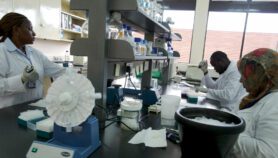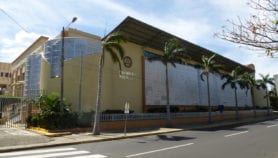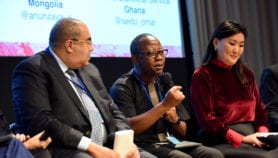17/11/23
Gender norms ‘still block African women in science’

By: Aphelele Buqwana
Send to a friend
The details you provide on this page will not be used to send unsolicited email, and will not be sold to a 3rd party. See privacy policy.
This article was supported by the O.R. Tambo Africa Research Chairs Initiative.
[PRETORIA] Traditional gender norms continue to stymy the progress of women in science in Africa, says Hulda Swai, one of two women appointed as chairs at an African research initiative dedicated to anti-apartheid icon Oliver Tambo.
The O.R. Tambo Africa Research Chairs Initiative (ORTARChI), which works to support research for socio-economic development across the continent, aspired to ensure that at least half of its chairs – appointed in 2020 for a five-year term – were women researchers.
But only two slots out of the ten chairs slots ultimately went to women.
“Women in Africa often face societal and cultural expectations that make it more difficult for them to pursue careers in science. Sometimes, even their own families are not supportive of their goals.”
Hulda Swai, an anti-malarial drug delivery researcher at the Nelson Mandela African Institution of Science and Technology (NM-AIST)
Swai, an anti-malarial drug delivery researcher at the Nelson Mandela African Institution of Science and Technology (NM-AIST) in Tanzania, believes lack of support and role models are blocking progress for women.
“Women in Africa often face societal and cultural expectations that make it more difficult for them to pursue careers in science,” Swai told SciDev.Net.
“Sometimes, even their own families are not supportive of their goals.”
She says men must step up to support women in their families in pursuing science pathways.
“Traditional gender roles and societal expectations, such as marriage and family responsibilities, can hinder women’s progress in the field,” she said.
“Encouragement from the broader society, including husbands, fathers, and brothers, can play a pivotal role in supporting women in science.”
Dorothy Ngila, from South Africa’s National Research Foundation, which is a core partner in the initiative, explained that the reason the gender requirements were not met was because of the poor women representation already existing in research and STEM.
“Research has consistently indicated that, globally, we have fewer women in research leadership positions,” Ngila said.
This, she said, is reflected in the pool of applications that were received for the ORTARChI chairs, as there were fewer applications from women.
Ngila told SciDev.Net of the effort the initiative is making to increase women representation, including tracking the number of postgraduate students and postdoctoral student that the chairs are mentoring and ensuring that women are represented in that cohort.
“The chairs are collectively supporting 157 master’s and PhD and Postdocs, of which 42 per cent are women,” she said.
“Additionally, of the cumulative 316 core research team members across all the chairs, 34 per cent are women.”
Last month, researchers and scientists from across Africa gathered in Pretoria, South Africa, for the 2023 ORTARChI Annual Gathering.
The meeting brought together researchers and scientists from across Africa to explore how to achieve research excellence through collaborations across the continent.
It sought to honour the legacy of its namesake Tambo, a South African anti-apartheid activist and former science teacher who co-founded the African National Congress Youth League alongside Nelson Mandela.
Tambo was dedicated to a free and united Africa and saw South Africa’s knowledge and expertise as a resource to be shared with the rest of the continent.
Swai commended the Annual Gathering for including female scientists and researchers as facilitators and speakers, sharing their expertise. She views this as a positive sign of progress for science in Africa.
She says more needs to be done to promote the value of science among young women and to give them the resources they need.
“For example, in Tanzania, I talk to female teenagers in various schools, and when they look at you as professor in science, they get so excited.
“What they need is to be encouraged,” she said in an interview with SciDev.Net after the event.
She is hopeful that Africa will see change for the better, as has been seen elsewhere.
“In Europe, for example, women are increasingly taking on leadership roles, and their contributions are being celebrated,” she says.
“We can learn from these successes and work towards a more supportive environment for women in Africa.”
Swai said she believed initiatives like ORTARChI had an important role to play in promoting the growth and development of young researchers in Africa, especially women.
“If the ORTARChI is successful in promoting the value of science and supporting the development of young researchers, it could lead to a positive cycle of growth and development on the continent,” she said.
She hopes it will serve as a model for future partnerships that support African researchers and lead to innovative breakthroughs that improve people’s lives on the continent.
This interview has been edited for clarity and conciseness.
This article was supported by the O.R. Tambo Africa Research Chairs Initiative. The inititiave honours the work of Oliver Tambo, a prominent South African and pan-Africanist with a science education background. In total ten researchers have been selected as O.R. Tambo Africa Research Chairs at leading universities across the continent. The Chairs are focused on research themes which are identified by each host institution in conjunction with national granting councils, and which are aligned with regional priorities.
This piece was produced by SciDev.Net’s Sub-Saharan Africa English desk.













